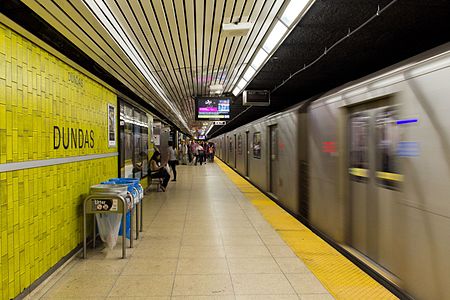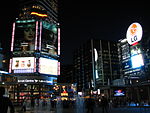Toronto Metropolitan University (TMU or Toronto Met, previously operating as, and presently legally incorporated as, Ryerson University) is a public research university located in Toronto, Ontario, Canada. The university's core campus is situated within the Garden District, although it also operates facilities elsewhere in Toronto. The university operates seven academic divisions/faculties, the Faculty of Arts, the Faculty of Community Services, the Faculty of Engineering and Architectural Science, the Faculty of Science, The Creative School, the Lincoln Alexander School of Law, and the Ted Rogers School of Management. Many of these faculties are further organized into smaller departments and schools. The university also provides continuing education services through the G. Raymond Chang School of Continuing Education.
The institution was established in 1948 as the Ryerson Institute of Technology, named after Egerton Ryerson—a prominent contributor to the design of the Canadian public school system whose views later influenced the development of the Canadian Indian residential school system following his death. In 1964, the institution was reorganized under provincial legislation, and renamed Ryerson Polytechnical Institute. Under that name, the institution was granted limited degree-granting powers during the 1970s. The institution was reorganized into a full-fledged university in 1993, and renamed Ryerson Polytechnic University. In 2002, several years after the university's school of graduate studies was established, the university adopted the name Ryerson University. In 2021, the university announced it would be renamed due to reconciliation of Egerton Ryerson's involvement in the residential school system. The school's new name of Toronto Metropolitan University was announced in 2022; however, pending the announcement some students referred to the school as X University.The university is a co-educational institution, with approximately 44,400 undergraduates and 2,950 graduate students enrolled there during the 2019–20 academic year. As of 2017, TMU had nearly 170,000 alumni. The university's athletics department operates several varsity teams that play as the Ryerson Rams, competing in the Ontario University Athletics conference of U Sports.











